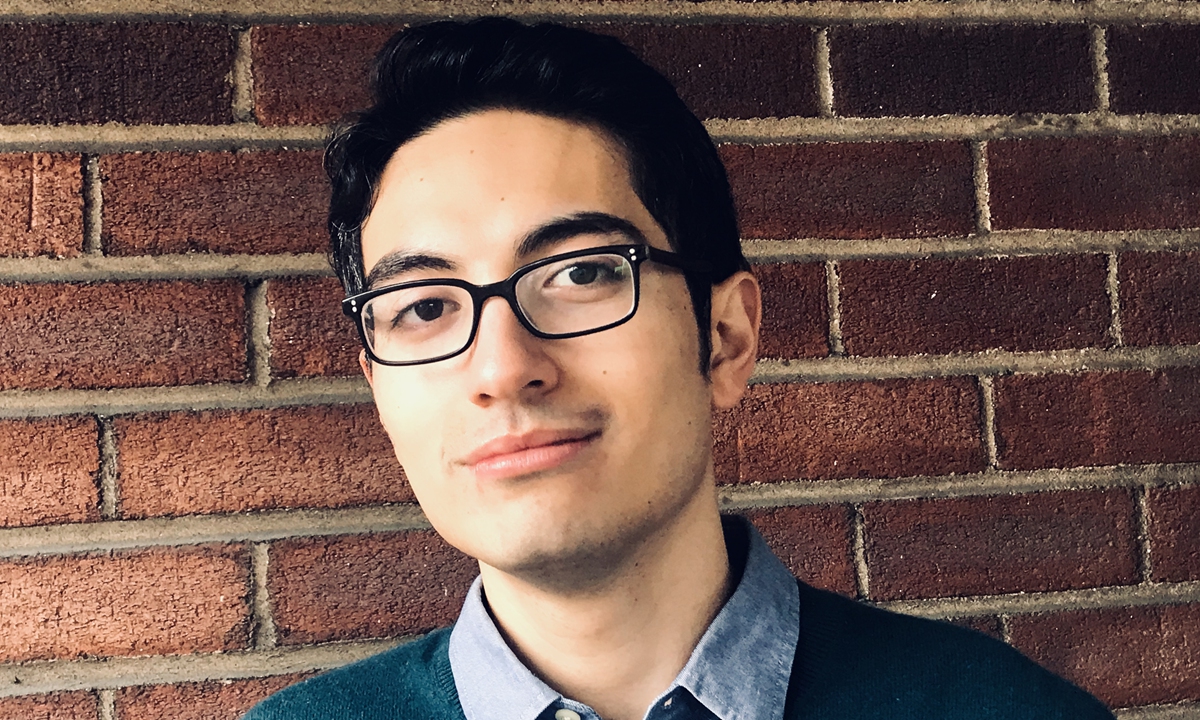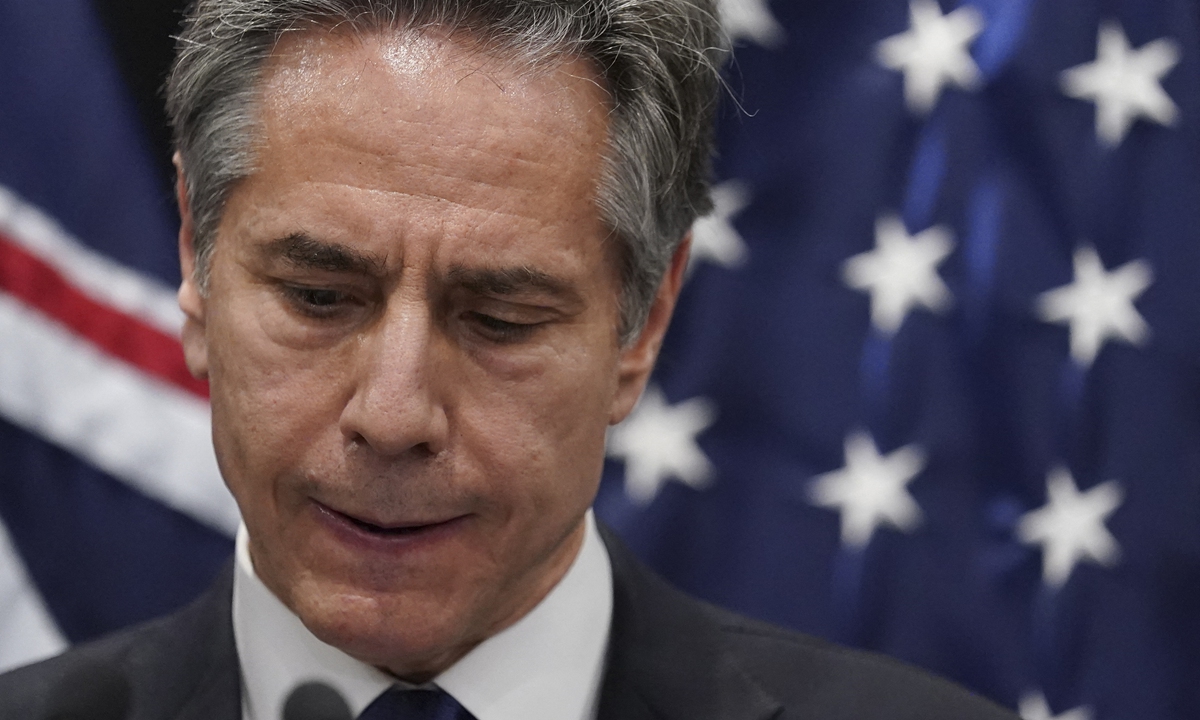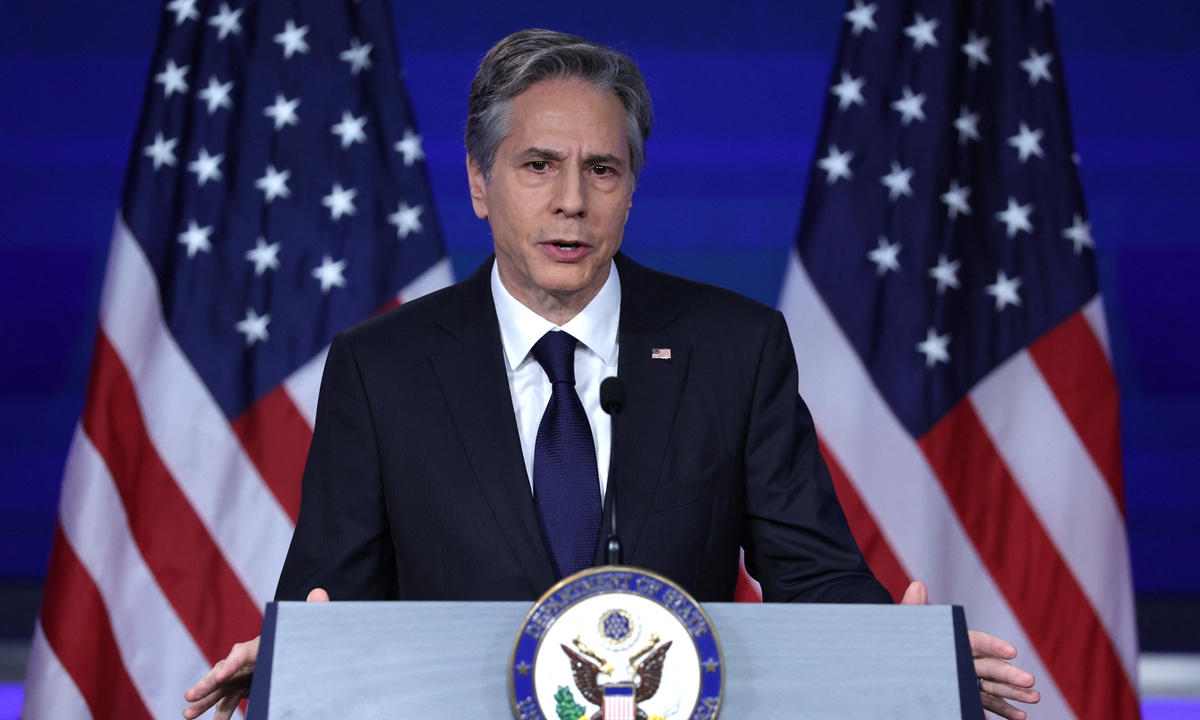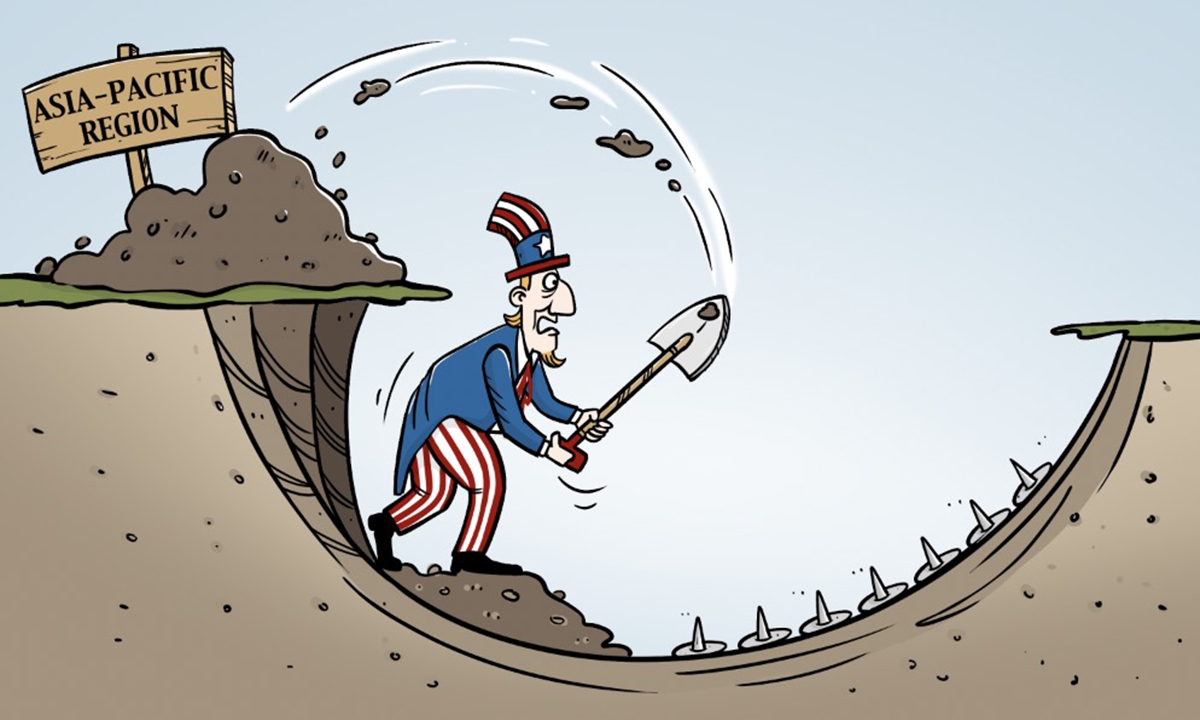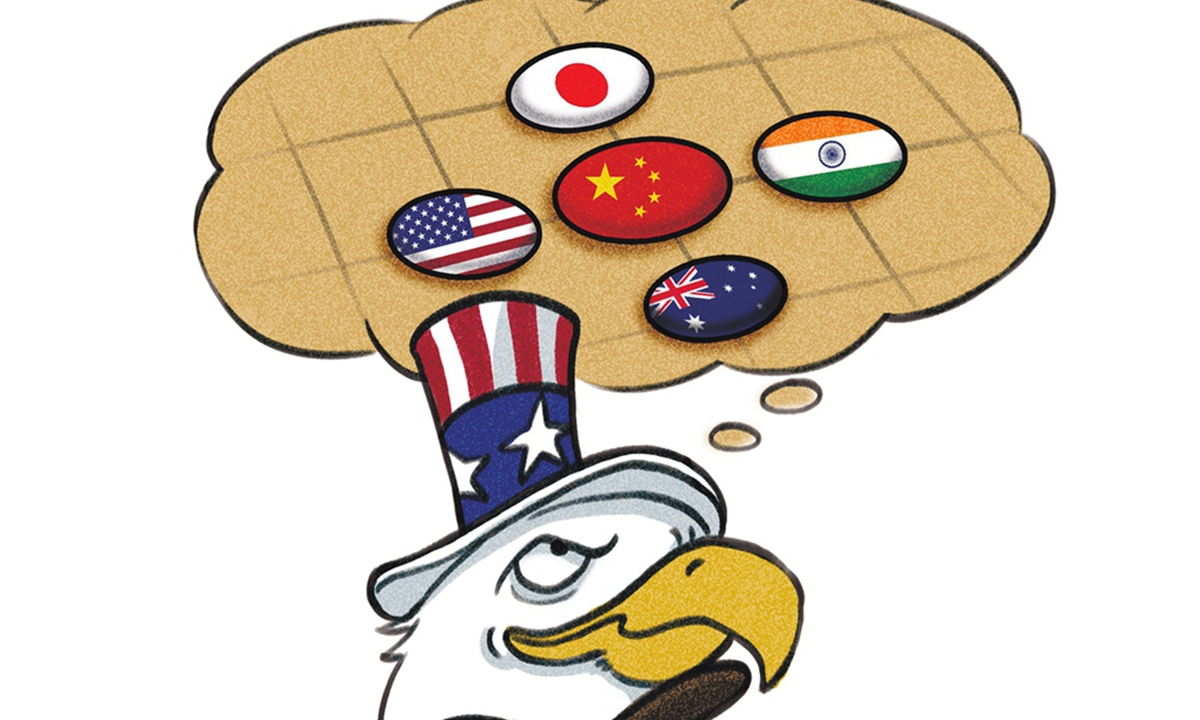
America's lucrative gun business Cartoon: Carlos Latuff
US President Joe Biden and first lady Jill Biden visited the Texan town of Uvalde on Sunday, laying a bouquet for the 21 victims, including 19 children, in the latest mass shooting. The grief that this school tragedy brought to American society is far from dissipating. Only 12 days ago, the Bidens were at the site of another mass shooting - a supermarket in Buffalo, New York - to mourn the 10 victims. Just in the past weekend, there were multiple shootings across the US, killing at least six people and injuring more than 30 others. Public anger is growing as more details of the Robb Elementary School shooting are revealed. According to reports, as many as 19 police officers stood in a hallway outside the classroom where the gunman was hiding for nearly an hour before they opened the door. One of the young victims bled to death while waiting for police to come, media reported. The New York Times released an opinion piece titled "Don't Talk to Me About 'Civility.' On Tuesday Morning Those Children Were Alive," denouncing the hypocrisy of the so-called "civility" hyped by the American elites. Biden also asked: "These kinds of mass shootings rarely happen anywhere else in the world. Why are we willing to live with this carnage? Why do we keep letting this happen?" But in a country that prides itself on being a "beacon of light," the clamor of public opinion as well as the condemnation from celebrities and politicians are not enough for the US system to reform its gun laws. The number of shootings in the US is increasing, like black ants gathering around rotting flesh. 2022 is not even halfway over, and more than 17,000 Americans, including 650 children, have already died from gun violence. Some Western media believe that US society has become "numb" in one shooting incident after another. Living a normal life after the gunfire should be called "American characteristics." And the American people can only dodge the bullets that come at any time by luck. Such tragedies are exacerbated by the division of American politics. One can see that "rituals" are replacing real reflection as the standard procedure for each tragic incident. Flags were lowered at half-mast when a million Americans died due to epidemic control failure. The flags were lowered for the slow search and rescue of people trapped in collapsed houses, and for the mass casualties by shootings. After the president and politicians made mournful rhetoric, saying "enough" and calling for "change," and gun ownership showed "a glimpse of regret" at charity dinners, the country can move on. Then the two parties will put their own spin on it. These tragedies have turned into weapons against opponents in a partisan struggle. When it comes to the problem itself, it has become a ball to be kicked around. In addition to the weak gun control, the shootings also reflect the intensification of various social contradictions in the US, such as the wealth gap, racial discrimination, drug abuse, and public security. The US system is equally incapable, or lacks interest, motivation, and courage, to address these problems thoroughly. Behind the opposition to gun control are powerful interest groups and the inertia of the traditional understanding of guns in US society. The huge influence of the National Rifle Association (NRA) in American politics daunts every politician. People's rights are always giving way to political interests or "political correctness." This is the inherent logic of the US system.
It is worth noting that when the US' internal problems have become increasingly prominent, it has intensified its external aggression, which is a vicious circle at another level. US Vice President Kamala Harris on Saturday spoke at a memorial service for Ruth Whitfield, a victim of the Buffalo supermarket shooting, that the US "is experiencing an epidemic of hate." Another fact that she was reluctant and inconvenient to say is that the US is undergoing "an epidemic of hostility" externally. In recent days, Washington was still obsessed with fabricating a lie of the century over "the human rights in Xinjiang" and has been recklessly attacking and smearing UN High Commissioner for Human Rights Michelle Bachelet's visit to China. They probably did not expect Bachelet to reserve her longest answer for the US shootings and the racism at the press conference at the end of her visit. She said that "people believe that they are superior to others and feel they have the right to kill other people, but they are not."
Facts have proven once again that the "darkness under the lights," including the shooting cases, is a chronic human rights disease that the US, the so-called "beacon of light," neither dares nor is willing to illuminate. To solve this problem, one cannot rely on self-touching "ceremonies," or use "human rights" as a weapon to attack other countries. We urge the US government to take concrete actions to solve its own severe human rights problems, and stop being a negative example of double standards in terms of human rights. We call on the Office of the UN High Commissioner for Human Rights (OHCHR) to launch an investigation into human rights problems in the US as soon as possible, so that the US-style hegemony cannot cover up its bad deeds.
Related posts
Michelle Bachelet Photo: Courtesy of Embassy of Chile in Beijing Western human rights groups are trying to make UN Human Rights Of.\


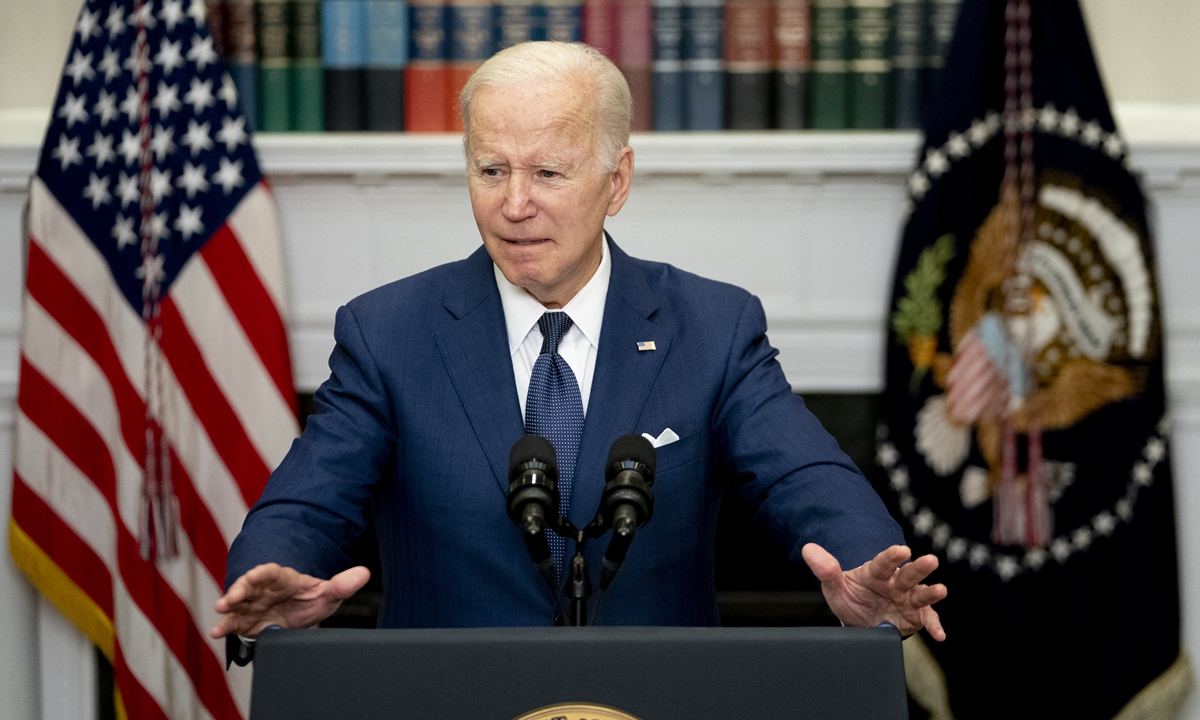
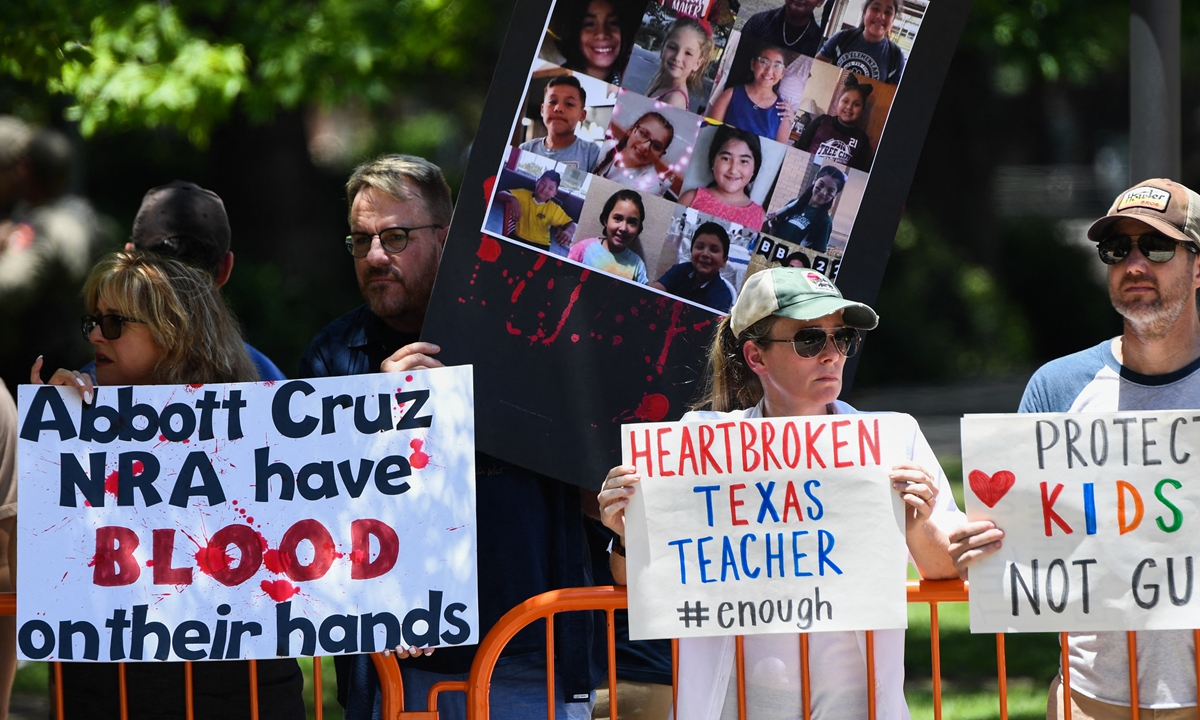




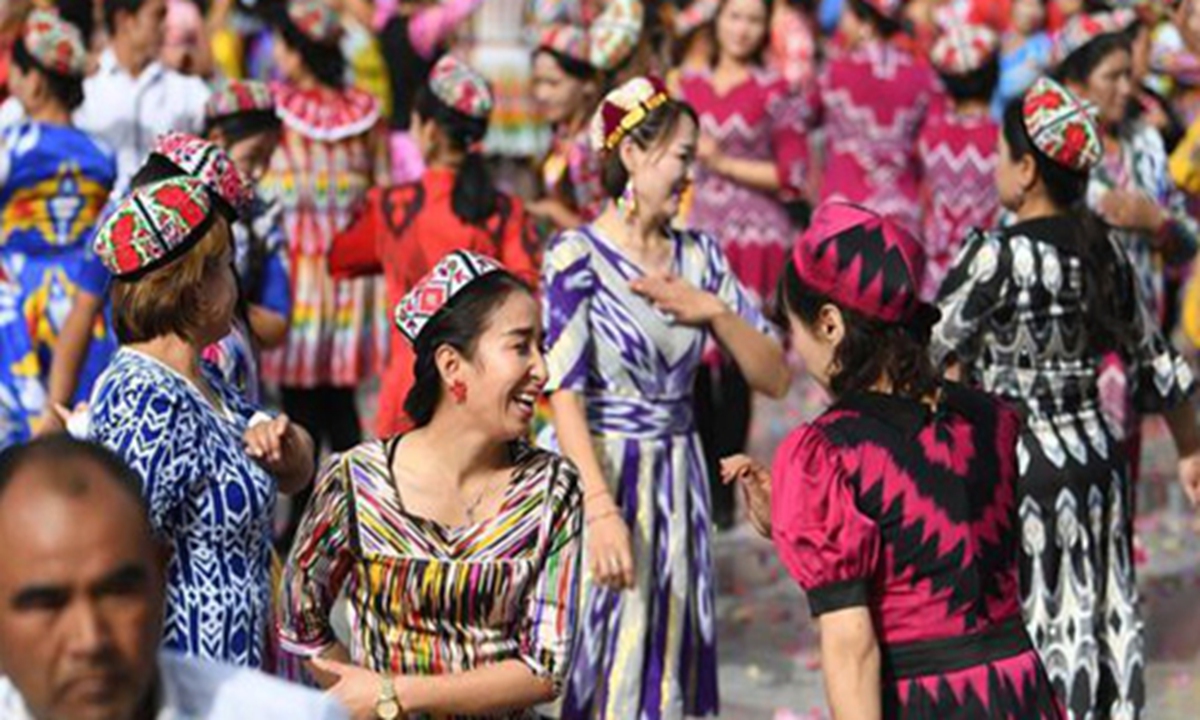 People attend a culture and tourism festival themed on Dolan and Qiuci culture in Awat County of Aksu Prefecture, northwest China's Xinjiang Uygur Autonomous region, Oct. 25, 2019. The festival kicked off recently in Aksu Prefecture. (Xinhua/Sadat)
It should be said that by visiting China under the pressure of the US and Western forces, Bachelet showed her efforts to learn the truth beyond the Western public opinion poisoned by these extremist forces. As Chinese State Councilor and Foreign Minister Wang Yi said that the high commissioner for human rights' trip to China would help enhance understanding and cooperation and clarify misinformation. We also expect that Bachelet would bring her comprehensive experience of a true Xinjiang to more people in the West who are willing to know the truth.
Of course, some people who pretend to be asleep may never be waken up. While Bachelet's visit was still underway, some so-called anonymous senior diplomats told media that the visit "is a victory to China." As human rights progress is endless, how can it be said to win or lose? Such rhetoric just reveals the genuine intent of the US and the West, which is to regard the normal exchanges and interactions between the UN high commissioner for human rights and China as part of a geopolitical game. They are trying so hard to "convict" China. As to the real situation in Xinjiang region, it doesn't matter to them at all.
It's precisely because of this that they must conduct an "investigation" on China with the presumption of guilt - whoever draws the conclusion of "genocide" and "forced labor" is "reliable." Such presumption of guilt is almost insane. In their eyes, a lunatic who claims that "people will be cut off their hands and feet when they arrive in Xinjiang," and "people will be shot dead if they refuse to eat pork" may appear to be "more credible" than the UN human rights chief. It has to be said that in order to smear and attack China, some people in the US and West have already broken the bottom line of common sense in their evil narratives against Xinjiang.
People attend a culture and tourism festival themed on Dolan and Qiuci culture in Awat County of Aksu Prefecture, northwest China's Xinjiang Uygur Autonomous region, Oct. 25, 2019. The festival kicked off recently in Aksu Prefecture. (Xinhua/Sadat)
It should be said that by visiting China under the pressure of the US and Western forces, Bachelet showed her efforts to learn the truth beyond the Western public opinion poisoned by these extremist forces. As Chinese State Councilor and Foreign Minister Wang Yi said that the high commissioner for human rights' trip to China would help enhance understanding and cooperation and clarify misinformation. We also expect that Bachelet would bring her comprehensive experience of a true Xinjiang to more people in the West who are willing to know the truth.
Of course, some people who pretend to be asleep may never be waken up. While Bachelet's visit was still underway, some so-called anonymous senior diplomats told media that the visit "is a victory to China." As human rights progress is endless, how can it be said to win or lose? Such rhetoric just reveals the genuine intent of the US and the West, which is to regard the normal exchanges and interactions between the UN high commissioner for human rights and China as part of a geopolitical game. They are trying so hard to "convict" China. As to the real situation in Xinjiang region, it doesn't matter to them at all.
It's precisely because of this that they must conduct an "investigation" on China with the presumption of guilt - whoever draws the conclusion of "genocide" and "forced labor" is "reliable." Such presumption of guilt is almost insane. In their eyes, a lunatic who claims that "people will be cut off their hands and feet when they arrive in Xinjiang," and "people will be shot dead if they refuse to eat pork" may appear to be "more credible" than the UN human rights chief. It has to be said that in order to smear and attack China, some people in the US and West have already broken the bottom line of common sense in their evil narratives against Xinjiang.

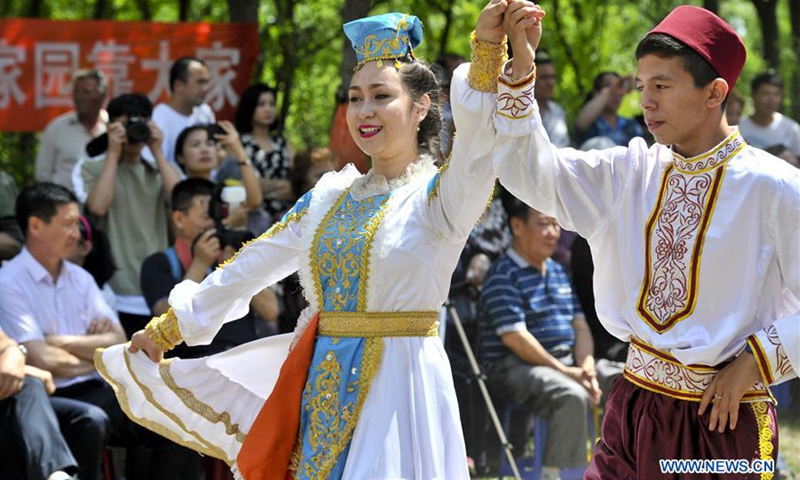

.jpeg)



